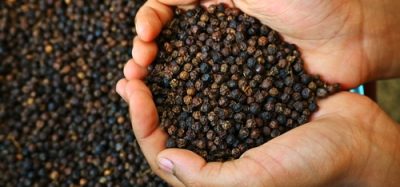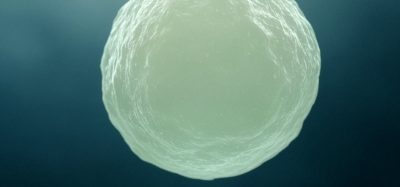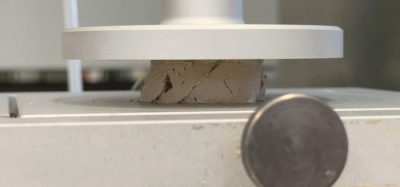A new vision
- Like
- Digg
- Del
- Tumblr
- VKontakte
- Buffer
- Love This
- Odnoklassniki
- Meneame
- Blogger
- Amazon
- Yahoo Mail
- Gmail
- AOL
- Newsvine
- HackerNews
- Evernote
- MySpace
- Mail.ru
- Viadeo
- Line
- Comments
- Yummly
- SMS
- Viber
- Telegram
- Subscribe
- Skype
- Facebook Messenger
- Kakao
- LiveJournal
- Yammer
- Edgar
- Fintel
- Mix
- Instapaper
- Copy Link
Posted: 30 June 2010 | David Pendlington, Sustainability Agriculture Programme Coordinator, Unilever | No comments yet
In November 2009, Unilever launched a bold new company vision to inspire people to take small, everyday actions that can add up to make a big difference for the world. Our aim is to double the size of its business while reducing its overall environmental impact. This new vision recognises the world is changing. Populations are growing. By 2050, nearly three billion more people will occupy the planet and by only 2030, world food production will have to increase by 50 per cent to meet the growing need for food.
In November 2009, Unilever launched a bold new company vision to inspire people to take small, everyday actions that can add up to make a big difference for the world. Our aim is to double the size of its business while reducing its overall environmental impact. This new vision recognises the world is changing. Populations are growing. By 2050, nearly three billion more people will occupy the planet and by only 2030, world food production will have to increase by 50 per cent to meet the growing need for food.
In November 2009, Unilever launched a bold new company vision to inspire people to take small, everyday actions that can add up to make a big difference for the world. Our aim is to double the size of its business while reducing its overall environmental impact. This new vision recognises the world is changing. Populations are growing. By 2050, nearly three billion more people will occupy the planet and by only 2030, world food production will have to increase by 50 per cent to meet the growing need for food. Rising incomes around the world continue to fuel demand for consumer products, products that rely on an increasingly constrained set of natural resources, whether its fuel or other raw materials. At the same time, climate change is not just a problem for the environment, it represents a huge threat to economic and social stability.
Pressure is also increasing from governments and campaigning organisations for greater transparency on where food comes from and how it has been grown. Businesses like Unilever are expected to play a role in addressing supply chain issues such as working conditions, fair incomes for growers and animal welfare.
Unilever recognises that to achieve its ambitious growth objectives, we must reduce the total environmental impacts of the business. Our commitment covers not just our own factories but is practiced across the whole value chain. Our business and brands impact at every stage of their lifecycle, in sourcing raw materials, packaging, manufacture, distribution, consumer use and disposal. We are embarking on a longterm programme with our suppliers, customers and other partners to realise this goal.
What progress have we made so far?
Measured by volume, approximately half of our raw materials that we buy come from agriculture and forestry. Security of supply is a core business issue. For Unilever, sustainable sourcing not only helps to manage a key business risk, it also presents an opportunity for growth, allowing our brands to differentiate themselves to the growing number of consumers who choose products based on their sustainability credentials. Our long-term goal is to be able to sustainably source all our raw materials. Unilever has been working on its Sustainable Agriculture Programme for 15 years. However, with the pressing social and environmental concerns about agriculture, sustainable sourcing has become a much more mainstream strategic issue for our business and brands.
We are already world leaders in the sustainable conversion of palm oil and tea. Last year we purchased 185,000 tonnes of certified sustainable palm oil via GreenPalm Certificates, accounting for 15 per cent of our total purchases. This is enough to cover our requirements in Europe, Australia and New Zealand. In 2010, we will double this to 30 per cent and double it again to 60 per cent in 2011. We will continue to do this until we reach our 100 per cent target by 2015.
We are also as a founder member of the Roundtable on Sustainable Palm Oil (RSPO) where we are helping to move the industry towards sustainable palm oil. Jan Kees Vis, Unilever’s Director of Sustainable Agriculture is the current RSPO President. It is a similar story on tea. Approximately 80 per cent of Lipton Yellow Label and PG Tips tea sold in Western Europe comes from Rainforest Alliance Certified Farms. Globally, approximately 15 per cent of our tea is sourced sustainably, representing good progress towards our 2015 goal, by which time we aim to sustainably source all our tea for Lipton tea bags.
Commitments like these not only help the environment, but also have a positive impact on the lives of millions of people. In Kenya alone, 38,000 smallholder tea farmers have achieved Rainforest Alliance certification and we are now working directly with more than 100,000 smallscale farmers to help promote sustainability across a range of different crops.
Auditing our suppliers
In April 2008, Greenpeace issued a report accusing our suppliers of ‘fuelling climate change’ by clearing forests and draining peat lands. To check the validity of Greenpeace’s claims, we commissioned an independent study to verify the allegations. The audit concluded that the Greenpeace report was broadly accurate. We shared the findings with our suppliers and urged them to address the shortcomings.
Following further allegations from Greenpeace in December 2009 in relation to one particular supplier, we decided to suspend future purchases of palm oil from that company until they can provide verifiable proof that none of their plantations are contributing to the destruction of high conservation value forests or expanding onto peat lands. While we still believe that it is best to engage constructively with suppliers to help drive change in the industry, we are ready to take tough action when necessary.
Working with brands
On any given day, two billion people use our products. This gives us a unique opportunity to help improve their everyday lives. Our research shows consumers not only want to be reassured that the products they buy are ethically and sustainably produced, they also want to choose brands that are good for them and good for others.
In 2009, we launched Rainforest Alliance Certified tea in the US, Japan and Australia. The launch in Australia was followed by a 12 per cent growth in sales.
The Caring Dairy program we run for Ben & Jerry’s ice cream now includes over 500 farms and 25,000 cows. In February 2010, Ben & Jerry’s announced its commitment to go fully Fairtrade across its entire global flavour portfolio. From Americone Dream to Chocolate Fudge Brownie, all the flavours in all the countries where Ben & Jerry’s is sold will be converted to Fairtradecertified ingredients by the end of 2013.
We have made a commitment to source 100 per cent cage-free eggs for our Hellmann’s, Amora and Calve products in Western Europe by 2012. We met this target ahead of schedule at the end of 2009. For Hellmann’s Light mayonnaise in North America, we began sourcing in 2009 to roll out the product this year. For Ben & Jerry’s ice cream, we met the target for Europe in 2004 and are on track to meet the US target by the end of 2010.
Working with suppliers
Unilever expects all its agricultural raw materials suppliers to commit to joining the sustainability journey and to demonstrate that they agree to minimum standards of performance and to continuously improve performance over time. Understanding we have to make a real difference in sustainability terms and being able to communicate this through our brands is leading us to create new ways of working with our suppliers.
For oilseed rape, in partnership with our major suppliers, we have embarked on a study of 30 farms to measure the sustainability of winter oilseed rape production in the Salzgitter region of Germany, the world’s largest producer of the crop. The study is a pilot phase which is hoped to deliver full certification, traceability and sourcing systems for sustainable winter oilseed rape by 2012.
However, we do not believe that certifying all of our products to a sustainability label is the only way forward, nor do we actually believe it is possible, particularly when considering the volume of crops we purchase.
In March 2010, we published the Unilever Sustainable Agriculture Code (SAC). It is the first time that the rules and standards of Unilever’s sustainable agriculture practices have been documented in one place. Its point of difference is that, unlike codes developed by other companies, the SAC has a constructive, inclusive and equivalence approach of working with suppliers to help Unilever deliver on its ambition of reducing its environmental impact. The Code is the key principle of Unilever’s sustainable sourcing ambitions.
David Pendlington, Sustainable Agriculture Programme Co-ordinator, explains that Unilever is the only company to have produced such a code. “It enables us to benchmark standards out there that suppliers may be using – such as Rainforest Alliance and Fairtrade – reducing duplication and not asking our suppliers to do something twice.” The aim is to help suppliers who have sound practices keep their costs to a minimum. “Unlike other companies in the industry, we will only ask for changes in areas where the standard in place and our code are significantly different … just because it wasn’t invented by Unilever doesn’t mean its not right for us, it just needs to be up to our stringent standards.”
This collection of sustainable practices has been created and tested by Unilever’s global network of practical agronomists and farmers, consultants and sustainability advisers to ensure it is relevant for growers the world over. As a result, it is now applicable to all of Unilever’s agricultural raw materials.
As an alternative to sustainable certification, we are currently deploying a software tool, loaded with our Unilever Sustainable Agriculture Code, to our tomato, vegetable and fruit suppliers. The tool is an off the shelf audit/self assessment tool from MuddyBoots software called Quickfire. It enables our suppliers to self assess themselves against Unilever’s Code and identify good stories or areas for improvement. The tool means Unilever and our suppliers can create evidence based improvement plans. So far, 100 of our suppliers are using the software and we are actively working on improvement plans together.
We are also supporting our suppliers, as a consequence of this self-assessment, to understand the options for reducing greenhouse gas emissions on farms by using our Cool Farm Tool through a joint project with the Sustainable Food Lab.
“The Cool Farm Tool will help us understand what practices make the biggest difference in any particular farm situation,” explains Christof Walter, Research Manager at Unilever. “Taking conditions on individual fields and farms into account is crucial because the effects of most greenhouse gas reduction practices vary a great deal, depending on soil, climate, management system and input intensities.”
This project has already attracted the support of some of the largest and most influential organisations in the food and agriculture space, including Unilever, General Mills, PepsiCo, Sysco, Marks & Spencer, Yara, Pulse Canada and AgroTerra. Each organisation will support the research by evaluating at least one, or in some cases more than one, farming system. These farming systems will consist of a diverse range of geographies including, the U.S., Latin America, Europe and Africa as well as a wide variety of crops such as canning tomatoes, potatoes, dairy, beef, cotton, mixed vegetables and cocoa.
Working with others
Many sustainability issues can only be addressed through a collaborative, multistakeholder approach. If we are to fulfil our vision, we must work in partnership. Partners bring expertise on specific issues as well as the networks to deliver practical initiatives on the ground. We complement this with our experience, marketing expertise and commercial muscle.
Some of our partnerships are formal relationships with well-known global organisations such as the Sustainable Food Lab, the Sustainable Agriculture Initiative Platform, The Roundtable on Sustainable Palm Oil and the Roundtable on Responsible Soy, as well as NGOs, governments and UN agencies. One example is the work we are doing to promote sustainable palm oil through a coalition of businesses and NGOs including Greenpeace, Oxfam and WWF.
Although Unilever has integrated sustainability factors into its business strategy since the 1990s, today the focus on sustainability is vital. Sustainable sourcing of key raw materials and designing products for a resource strained world are critical to our continued business growth and success.
We are making steady progress towards the goal we have set ourselves to ultimately source all our agricultural raw materials sustainably. We have challenges ahead, but we know that our actions will create real value for our customers and consumers, and will inspire other companies to join us on this important journey.
About the Author
David Pendlington
David has been with Unilever 18 years. He spent his first six years with the agricultural R&D division for Unilever’s European frozen vegetable business, focusing on pesticide use reduction/optimisation and alternative methods of control. He then moved to the inter – national sourcing development group to develop new sourcing opportunities, primarily for Unilever’s global tomato pasta sauce business. In 1998, Unilever started its Sustainable Agriculture programme, and during this time, David led the first sustainable agriculture project with the UK Birds Eye frozen pea business. This involved creating the framework of sustainability indicators and managing operational field testing with 20 farmers. David moved back to R&D to head the Unilever R&D sustainable agriculture programme, and then completed a two year secondment with the UK Government Cabinet Office. His role was to help reduce bureaucracy and red tape in business. In 2005, he rejoined the Global Unilever sustainable agriculture programme based in Rotterdam. His responsibilities include giving advice and support to the Community of Practice managing Unilever’s key crops on the ground, as well as supporting engagement with third party suppliers on sustainability issues. He also provides expert support to brand and customer teams, and is the Vice President of SAI Platform.







